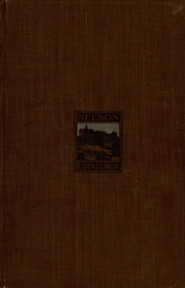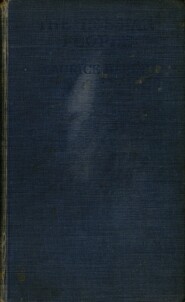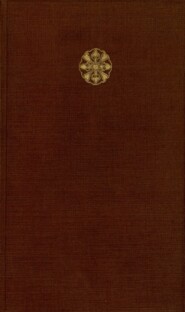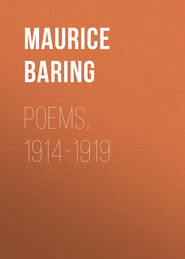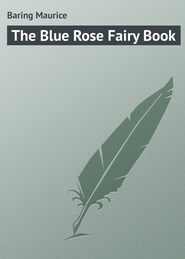По всем вопросам обращайтесь на: info@litportal.ru
(©) 2003-2024.
✖
Passing By
Настройки чтения
Размер шрифта
Высота строк
Поля
Finished Renan's Souvenirs d'Enfance et de Jeunesse. He says: "Je regrettais par moments de n'être pas protestant, afin de pouvoir être philosophe sans cesser d'être Chrétien. Puis je reconnaissais qu'il n'y a que les Catholiques qui soient conséquents." Riley's argument. Dined at the Club.
Wednesday, June 29th.
Dined with Hope at a restaurant in Soho. Quite a large gathering, with no one I knew. We had dinner in a private room. Two journalists – Hoxton, who writes in one of the Liberal newspapers, and Brice, who edits a weekly newspaper – had a heated argument about religion. Brice is and has always been an R.C. Hoxton's views seemed to me violent but undefined. He said, as far as I understood, that the Eastern Church was far nearer to early Christian tradition than the Western Church, and that by not defining things too narrowly and by not having an infallible Pope the Greeks had an inexpressible advantage over the Romans. Upon which someone else who was there said that the Greeks believed in the infallibility of the First Seven Councils; they believed their decisions to be as infallible as any papal utterance, and that dogma had been defined once and for all by the Councils. Brice said this was quite true, and while the Greeks had shut the door, the Catholic Church had left the door open. Besides which, he argued, what was the result of the action of the Greeks? Look at the Russian Church. As soon as it was separated it gave birth to another schism and that schism resulted in the rise of about a hundred religions, one of which had for one of its tenets that children should be strangled at their birth so as to inherit the Kingdom of Heaven without delay. That, said Brice, is the result of schism.
The other man said that there was no religion so completely under the control of the Government as the Russian. The Church was ultimately in the hands of gendarmes. Hoxton said that in spite of schisms, and in spite of anything the Government might do, the Eastern Church retained the early traditions of Christianity. Therefore, if an Englishman wanted to become a Catholic, it was absurd for him to become a Roman Catholic. He should first think of joining the Eastern Church and becoming a Greek Catholic. The other man, whose name I didn't catch, asked why, in that case, did Russian philosophers become Catholics and why did Solovieff, the Russian philosopher, talk of the pearl Christianity having unfortunately reached Russia smothered under the dust of Byzantium?
Brice said the Greek Church was schismatic and the Anglican Church was heretical and that was the end of the matter. Hoxton said: "My philosophy is quite as good as yours." Brice said it was a pity he could neither define nor explain his philosophy. Hope, who was bored by the whole argument, turned the conversation on to the Russian stage.
Thursday, June 30th.
Dined with Aunt Ruth. After dinner I sat next to a Russian diplomatist who knew Riley. He said he was glad he had become a Catholic – he himself was Orthodox. He evidently admired the Catholic religion. He said, among other things, how absurd it was to think that such floods of ink had been used to prove the Gospel of St John had not been written by St John. He said, even if it wasn't, the Church has said it was written by St John for over a thousand years. She has made it her own. He himself saw no reason to think it was not written by St John. Uncle Arthur, who caught the tail end of this conversation, said the authorship of John Peel was a subject of much dispute. Gertrude wasn't there; they have gone to the country.
Friday, July 1st.
Dined with Lady Jarvis. Cunninghame was there and a large gathering of people. More people came after dinner and there was music, but such a crowd that I could not get near enough to listen so I gave it up and stayed in another room. Lady Jarvis told me Mrs Housman is going down to Cornwall next Monday.
Saturday, July 30th. Grey Farm, Carbis Bay.
Arrived this evening after a hot and disagreeable journey. The Housmans are here alone. Housman goes back to London on Tuesday. A. is coming down here as soon as he is fit to travel. He is still very weak.
Sunday, July 31st.
The Housmans went to Mass. Father Stanway came to luncheon. He said he had been giving instruction to an Indian boy who is being brought up as an R.C. I asked him if it was difficult for an Indian to understand Christian dogma. Father Stanway said that the child had amazed him. He had been telling him about the Trinity and the Indian had said to him: "I see – ice, snow, rain – all water."
Monday, August 1st.
Housman played golf. Mrs Housman took me to the cliffs and began reading out Les Misérables, which I have never read.
Tuesday, August 2nd.
Housman left early this morning. We sat on the beach and read Les Misérables.
Wednesday, August 3rd.
Lady Jarvis arrives to-morrow. We continued Les Misérables in the afternoon and after dinner. Mrs Housman said that some conversations and the reading of certain passages in books were like events. Once or twice in her life she had come across sentences in a book which, although they had nothing extraordinary about them and expressed things anyone might have thought or said, were like a revelation, or a solution, and seemed to be written in letters of flame and had a permanent effect on her whole life; one such sentence was the following from Les Misérables: "Ne craignons jamais les voleurs ni les meurtriers. Ce sont là les dangers du dehors, les petits dangers. Craignons nous-mêmes. Les préjugés, voila les voleurs; les vices, voila les meurtriers. Les grands dangers sont au dedans de nous. Qu'importe ce qui menace notre tête ou notre bourse!" She said: "Of course this has never prevented me from feeling frightened when I hear a scratching noise in the night. That paralyses me with terror."
Thursday, August 4th.
We continued our reading. The weather has been propitious. Lady Jarvis arrived in the evening. We continued our reading after dinner.
Friday, August 5th.
A. arrived this evening. He was exhausted after the journey and went to bed at once. Housman arrives to-morrow – he is only staying till Monday.
Saturday, August 6th.
A. sat in the garden and Mrs Housman read out some stories by H.G. Wells from a book called The Plattner Story, which we all enjoyed.
Housman arrived in the evening. A. is not yet strong enough to walk. He sits in the garden all day. The weather is perfectly suited to an invalid.
Sunday, August 7th.
Housman invited Father Stanway to luncheon. He and Housman talked of politicians and popularity and the Press and to what extent their reputation depended on it. Housman said it was death to a politician not to be mentioned. A politician needed popularity among the public as much as an actor did. Father Stanway said it was a double-edged weapon and that those who lived by it risked perishing by it. Housman said Gladstone and Beaconsfield had lived by it successfully. Father Stanway said it depends whether you want to be famous or whether you want to get things done. A man can do anything in the world if he doesn't mind not getting the credit for it. Father Stanway said nobody realised this better than Lord Beaconsfield. He said somewhere that it was private life that governs the world and that the more you were talked about the less powerful you were.
A. is a little better. I went for a walk with Father Stanway in the afternoon. I asked him a few questions about the system of Confession. He said the Sacrament of Penance was a Divine Institution. I asked him if the practice did not lead to the shirking of responsibility and the dulling of the conscience on the part of those who went to Confession. He said Confession was not an opiate but a sharp and bitter medicine, disagreeable to take but leaving a clean after-taste in the mouth I gave him a hypothetical case of a man being in love with a Catholic married woman. If the woman was a practising Catholic and faithful to her husband, and if she continued to be friends with the man who was in love with her, would she confess her conduct and, if so, would the priest approve of the conduct? Father Stanway said it was difficult to judge unless one knew the whole facts. If the woman knew she was acting in a way which might lead to sin or even to scandal – that is to say, in a way which would have a bad effect on others – she would be bound to confess it. If a woman asked him his advice in such a case he would strongly advise her to put an end to the relationship. I said: "You wouldn't forbid it?" He said: "The Church forbids sin, and penitents when they receive Absolution undertake to avoid the occasions of sin." He said he could not tell me more without knowing more of the facts. Cases were sometimes far more complicated than they appeared to be, but however complicated they were, there was no doubt as to the attitude of the Church towards that kind of sin and to the advisability of avoiding occasions that might bring it about.
Monday, August 8th.
Housman went back to London. Cunninghame arrives to-morrow. A. walked as far as the beach this morning. In the afternoon Lady Jarvis took him for a drive. Mrs Housman went into the town to do some shopping.
Tuesday, August 9th.
We all went for a drive in a motor to a village with a curious name and had tea in a farm-house. Cunninghame arrived in time for dinner. He has been staying at Cowes.
Letter from Guy Cunninghame to Mrs Caryl
CARBIS BAY,
Wednesday, August 10th.
DEAREST ELSIE,
I arrived last night from Cowes. I found Mrs Housman, Lady Jarvis, George and Godfrey.
George is very much better, but he is still weak and can't get about much. He is not allowed to play golf yet. He sits in the garden, and goes for a mild walk once a day. Lady Jarvis says that Mrs Housman is very unhappy. In the first place, her home is intolerable. Mrs Fairburn makes London quite impossible for her. It is a wonder that she is not here, but as Housman is in London there is nothing to be surprised at. In the second place, Lady Jarvis thinks that Mrs Housman would much rather George hadn't come, but she couldn't help it as Housman asked him.
We do things mostly altogether now. I am staying a fortnight, then I go to Worsel for a week and to Edith's till the end of September; then London. Lady Jarvis says that she is sure Mrs Housman will not spend the winter in London.
Write to me here and tell me about the Mont Dore. I have been there once and think it is an appalling place.
Yrs.
G.
From the Diary of Godfrey Mellor
Wednesday, August 10th.
A. has been doing too much, the doctor says, and he is not to be allowed out of the garden for a few days. Mrs Housman and Lady Jarvis take turns in reading to him aloud. We have finished the Wells book and we are now reading Midshipman Easy.
Thursday, August 11th.
I went for a walk with Cunninghame. He said his favourite book was John Inglesant and was surprised that I had not read it. He has it with him and has lent it to me.
Friday, August 12th.
It rained all day. We spent the day reading aloud.
Saturday, August 13th.






